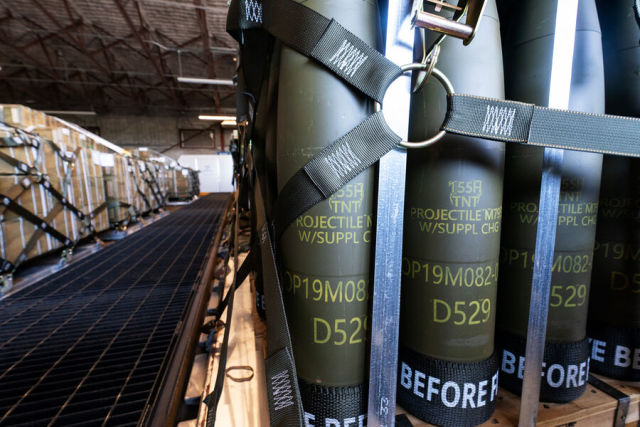WSJ: The Biden administration is ready to approve the supply of depleted uranium shells to the APU
The Biden administration is ready to send depleted uranium shells to Kiev, media reports citing sources. The White House decided to give the APU these shells for tanks after a "series of debates" about what the American Abrams M1 sent to Ukraine should shoot with. Earlier, the UK began supplying depleted uranium shells. Earlier, the Serbian Minister of Health warned of the danger of using such ammunition for civilians.
The American administration intends to send shells with depleted uranium cores for Abrams M1 tank guns to Ukraine. This is reported by The Wall Street Journal newspaper with reference to its informed sources.
US President Joe Biden has not yet determined whether Kiev will receive such weapons, including cluster munitions.
On April 25, TASS, with reference to the written answers of the deputy head of the Ministry of Defense of the United Kingdom, James Hippy, to the deputy Kenny Akaskill, reported that London had transferred "thousands of shells" to Kiev, including depleted uranium.
At the same time, Britain has no obligations to eliminate the consequences of their use at the end of the conflict. "For operational security reasons, we will not comment on the usage rates of the supplied kits," the Hippie stated.
He stressed that the depleted uranium shells were transferred to the Ukrainian side and are controlled by the Ukrainian Armed Forces, and the UK Ministry of Defense does not track the places where they will be used.
On March 21, Russian President Vladimir Putin said that plans to supply depleted uranium shells to Ukraine indicate the West's intention to "fight Russia to the last Ukrainian, not in words, but in deeds." He also said that the Russian Federation itself possesses thousands of depleted uranium shells, but does not plan to use it yet.
On March 23, Newsweek magazine published an article with the opinion that the assurances of Western politicians about the harmlessness of depleted uranium are not credible. The author of the article notes that the International Atomic Energy Agency (IAEA) confirmed the risks of cancer due to radiation from depleted uranium, but indicated that this is not supported by research.
At the same time, Newsweek refers to a report by the World Health Organization (WHO) that Iraqi residents who were exposed to depleted uranium during the US presence in the region had health problems.
Depleted uranium is used in armor-piercing sub-caliber shells, which are used to defeat armored vehicles. Such ammunition was used during the bombing of Yugoslavia, Operation Desert Storm and the American invasion of Iraq in 2003. In total, during the "Desert Storm", the US Armed Forces and their allies fired about 782 thousand such shells, The Guardian newspaper reported. During the bombing of Yugoslavia, the US military spent more than 40 thousand uranium shells, most of them were scattered on the territory of Bosnia and Kosovo.
Serbian Health Minister Danica Grujicic believes that the depleted uranium bombing was an "inhumane experiment" on the inhabitants of the Western Balkans.
"The use of depleted uranium, which was not neutralized ..., not only led to an increase in oncological diseases, we note a significant increase in infertility in men, autoimmune diseases of all kinds, pathologies during pregnancy, certain mental disorders in children born during this period, or whose parents are exposed to this negative impact," RIA Novosti quoted the speech the heads of the Ministry of Health in March of this year. Grujic believes that, first of all, the Ukrainians themselves will suffer from the use of such ammunition.
International organizations do not consider ammunition with a depleted uranium core to be chemical or nuclear weapons. Their use is not regulated by any conventions and agreements, and is not prohibited - because this type of weapon "is too new."
Although uranium is highly toxic, in its unenriched form it is no more dangerous than mercury or arsenic. The key danger of such uranium is the dust released from the ammunition that collapses over time.
Peter Nikolaev

